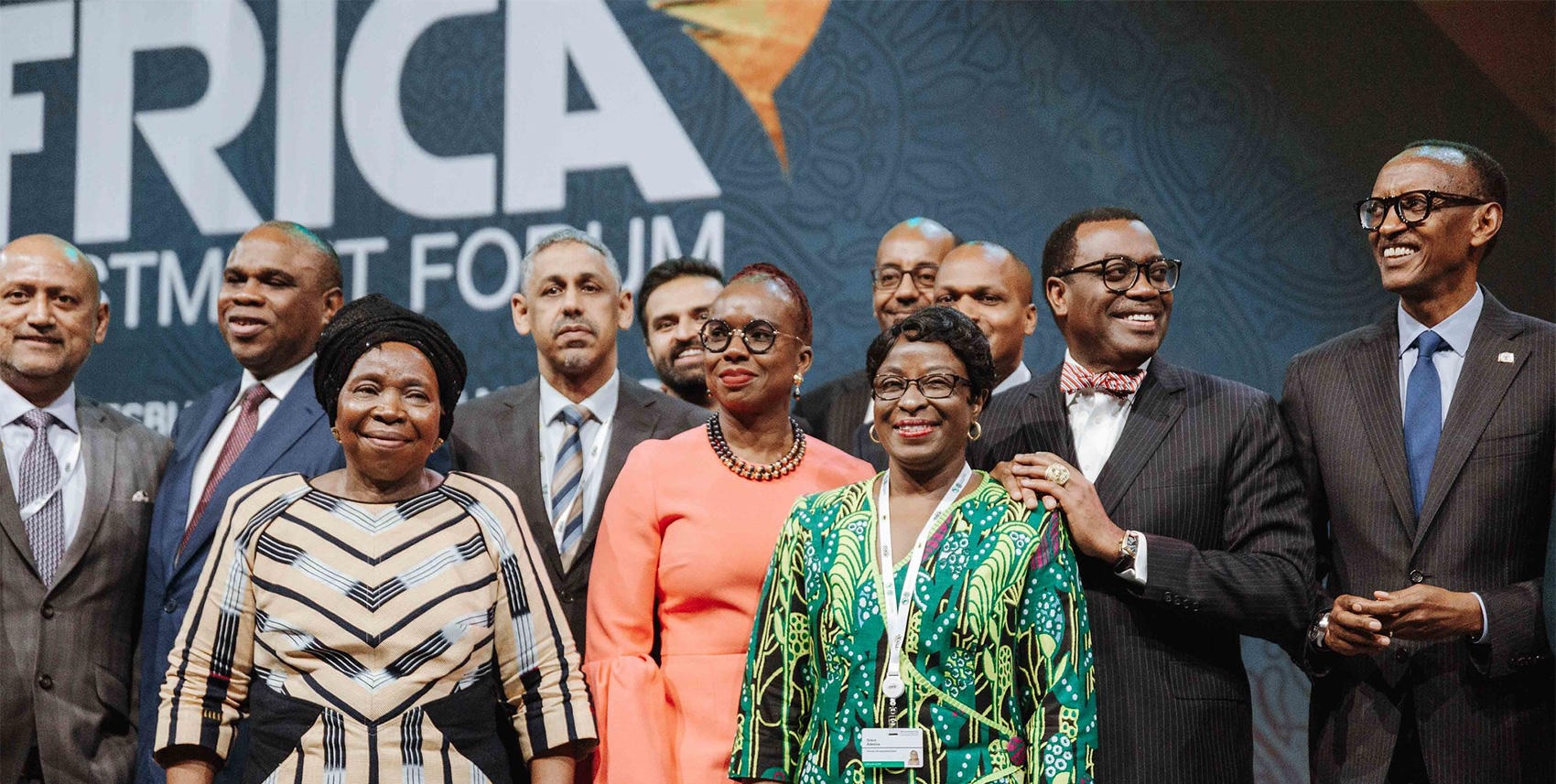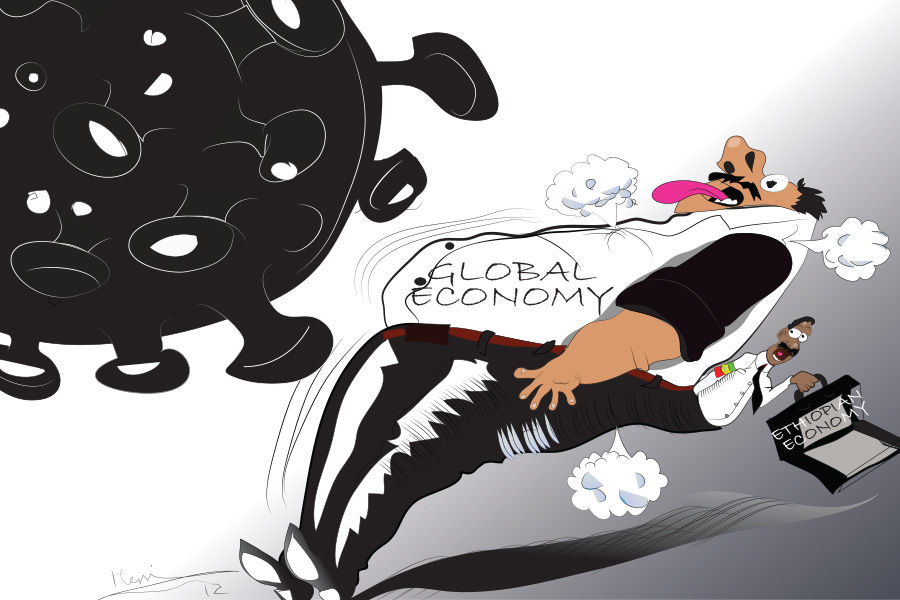
Commentaries | Oct 09,2021
Oct 23 , 2021.
Ethiopia`s civil war continues to rage, with no sign of respite or a prospect for a negotiated settlement. It is sad, depressing and regrettable. Thousands continue to perish, hundreds of thousands starved, and millions displaced. With no appetite by leaders of the warring sides for a ceasefire, the loss on the battlefronts and the suffering resulting from war is mounting by the day.
The world seems to have no leverage to stop the carnage. It has proven divided and inept. After nine rounds of briefings, members of the UN Security Council (UNSC) could not reach a consensus on what to do with the tragedy unfolding in Ethiopia. Some members want to respect Ethiopia`s state sovereign right to handle its internal affairs the way it sees fit. Others wish to invoke the responsibility to protect, a humanitarian principle to bypass sovereignty of member states to protect civilians from atrocities.
Both seem to realise inaction will not stay long in the face of mounting humanitarian disasters.
The United States and its allies in the European Union are on the frontline of international diplomacy pushing the UNSC to act. This makes Addis Abeba furious and ruins its once cosy relationship with Washington DC. There is no more apt a political saying than, "politics makes for strange bedfellows." Sometimes, it also makes for stranger enemies or at least opponents. There was a time when Ethiopia seemed a favoured ally of the West, undemocratic but a strong partner in a strategic region of the world. It even hosted the 12th AGOA Forum.
Ethiopia is now a black sheep in the eyes of the West, cavorting with the regime in Eritrea. In the words of Western publications, Ethiopia is starving its people on purpose.
How much things have evolved in a different direction so fast from the earlier days of Prime Minister Abiy Ahmed in office when Washington was a cheerleader of the much-touted "reform"?
The Biden Administration is now threatening to delist Ethiopia from quota and duty-free export preferential terms the US granted for sub-Saharan African countries. It is tacit disapproval of Ethiopia under Prime Minister Abiy, who declined to meet with President Biden's special envoy when he was visiting Addis Abeba two months ago. It could be a contemplation followed the executive order signed by President Biden to use sanction tools against individuals and entities Washington considers are spoilers of its efforts to stop the war to bring the warring parties to the negotiating table.
The trade privilege, the African Growth & Opportunity Act (AGOA), was signed into American law in 2000. The idea behind it is to improve the relationship of the US with the African countries eligible for the preferential terms and make the playing field "fair" in a world that has become disadvantageous for countries in the global south. Countries in Africa, in particular, find it increasingly difficult to compete with advanced economies with infrastructure, skilled human power and technology.
The United States is an important export destination for products from Ethiopia. It accounted for 16pc of Ethiopia's export volume two years ago, with a total value of close to half a billion dollars. It is one of the few countries where Ethiopia enjoys a positive trade balance for importing half the value it exports. AGOA, a duty- and quota-free access to around 6,500 products from Ethiopia, including textiles and clothing, is one of the facilities that helped this.
Any apparel and clothing produced locally qualify under AGOA. Over the past decades, goods exported under this trade term have increased to 238 million dollars by 2020, from less than 10 million dollars. It took an investment by the federal government of over 1.5 billion dollars in erecting 13 industrial parks, with the potential to export goods valued at over 700 million dollars. Close to 30 of the 33 companies operating in these parks use the privilege under AGOA to ship apparel to the United States. They employ over 83,000 people, four-fifths of them young women, and provide a livelihood to over 200,000.
The concern over the impact of the possibility of delisting Ethiopia from AGOA should be understandable. It may not mean that these people will lose their jobs overnight, as AGOA only provides duty-free access to their employers. However, the prospect for the much-needed job growth in the textile industry, which accounts for much of the manufacturing sector, will be handicapped, subjecting many to poverty levels already exacerbated by COVID-19, war and inflation.
Equally, it is helpful to recognise where the United States is coming from in this argument. It is concerned with the unabated bloodletting and the lack of humanitarian access to citizens in conflict areas. It has commendably called for a ceasefire, unfettered access to humanitarian provisions and accountability to those who committed crimes against humanity and war crimes. However, these calls need to be heeded as most moderate voices in the political space – few they may be at the moment – would agree.
The Biden Administration appears to be left with a few options other than threatening to use sanctions as leverage to influence the behaviour of leaders in Ethiopia.
Sanctions are foreign policy instruments powerful countries deploy when they are unable and unwilling to intervene in the absence of domestic support for military engagement. Their goal is to force policy changes through restrictions on financial transactions and trade. Although the US and EU are most known for using these foreign policy tools, sanctions are not their exclusive domain. Russia imposed sanctions on Georgia and Ukraine and China on Japan and the Philippines.
There have been moments in history when sanctions worked. Libya is one example, which traded the lifting of sanctions for eliminating its nuclear development programme. This may have partly been in response by an alarmed Muammar Gaddafi to the US invasion of Afghanistan; still, sanctions played a part. Perhaps the finest example of sanctions working is the case of Apartheid South Africa, a comprehensive worldwide effort in the latter half of the 20th Century to end grossly institutionalised racism.
But, the history of sanctions as effective instruments to change the behaviours of leaders in troubled countries is precarious at best. They were seen working against intentions by fuelling the patriotism and nationalism of the populations in the targeted countries, encouraging their leaders to double down on their policies. For sanctions to be effective, they have to be used like drones: targeted with precision. If not applied smartly and carefully, the poor who are meant to be protected from harm would be on the receiving end of the sanctions.
Sanctions do not fit all sizes. They do not fit most of them. To say that the history of sanctions, especially against illiberal regimes, is a mixed bag is to underplay just how ill-suited it is as a foreign policy tool. Both Yemen and Syria have a web of sanctions against them by the EU and the US. Both are far from ending their gruesome conflicts. Saddam Hussein's regime was bombarded by sanctions in the 1990s, even as the humanitarian impact on the general population was evident. Saddam had been in power and would have continued had Iraq not been invaded by the United States.
The same is true for Myanmar, which had been under a combination of sanctions in the latter half of the 20th Century, which ebbed but only went on to increase during the Rohingya crisis. It was not made better by the sanctions, nonetheless. Myanmar descended into violence following a coup earlier this year. The same can be said for some of the most substantial sanctions placed against countries, as in Cuba, Iran, North Korea and Eritrea. The latter two have grown more repressive.
Other conflicts in African countries have been responded to in the same way as in Ethiopia – from the Central African Republic and Burundi to DRC – and very few things have gone right for these countries. South Sudan, Zimbabwe and Cameroon do not have AGOA eligibility. There is no evidence that either of them has been made better by their inability to trade favourably with the United States.
A study that examined 174 cases worldwide over six decades shows that the success rate of sanctions is about 34pc. Regime change and attempts against military adventure are less likely to work through sanctions than more modest targets such as releasing political prisoners.
Since every policy should be carried out after careful cost-benefit analysis, the policy of sanctions against Ethiopia, especially those that would harm the general population as with the potential impact of AGOA, should be no different. Delisting Ethiopia from AGOA eligibility would lead tens of thousands of families to lose their livelihoods. Ethiopia will not become a better place for its citizens the more companies close shops and are forced to lay off their employees due to the loss of an indispensable market.
Neither will the delisting have the force to change its leaders' behaviour beyond sending a strong message whose impact harms ordinary people and the companies employing them.
PUBLISHED ON
Oct 23,2021 [ VOL
22 , NO
1121]

Commentaries | Oct 09,2021

Radar | Apr 17,2021

Life Matters | Jun 13,2020

Radar | Dec 21,2019

Radar | Sep 06,2020

Editorial | Jan 07,2024

Radar | Nov 23,2019

Fortune News | Nov 11,2019

Editorial | Mar 14,2020

Commentaries | Jul 25,2020

Photo Gallery | 180558 Views | May 06,2019

Photo Gallery | 170751 Views | Apr 26,2019

Photo Gallery | 161828 Views | Oct 06,2021

My Opinion | 137293 Views | Aug 14,2021

Dec 22 , 2024 . By TIZITA SHEWAFERAW
Charged with transforming colossal state-owned enterprises into modern and competitiv...

Aug 18 , 2024 . By AKSAH ITALO
Although predictable Yonas Zerihun's job in the ride-hailing service is not immune to...

Jul 28 , 2024 . By TIZITA SHEWAFERAW
Unhabitual, perhaps too many, Samuel Gebreyohannes, 38, used to occasionally enjoy a couple of beers at breakfast. However, he recently swit...

Jul 13 , 2024 . By AKSAH ITALO
Investors who rely on tractors, trucks, and field vehicles for commuting, transporting commodities, and f...

Nov 2 , 2025
The National Bank of Ethiopia (NBE) has scrapped the credit-growth ceiling that had s...

Nov 2 , 2025 . By SURAFEL MULUGETA
The burgeoning data mining industry is struggling with mounting concerns following th...

Nov 2 , 2025 . By YITBAREK GETACHEW
Berhan Bank has chosen a different route in its pursuit of a new headquarters, opting for a transitional building instea...

Nov 2 , 2025 . By BEZAWIT HULUAGER
Nib International Bank S.C. has found itself at the epicentre of a severe governance...